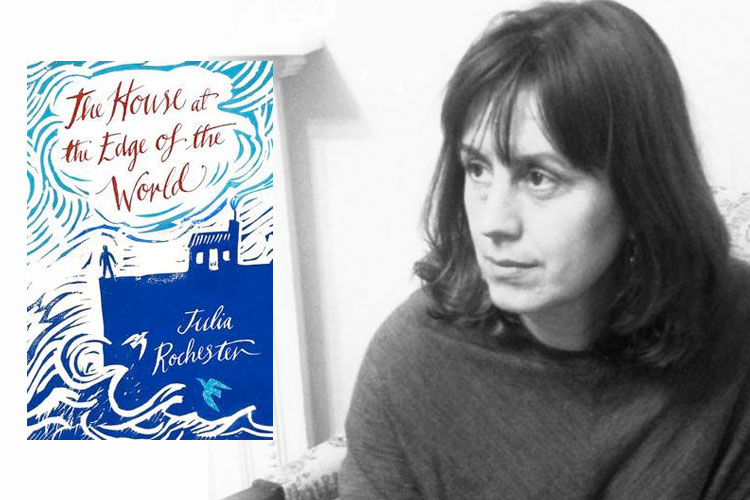From the Women’s Prize Archives.
With the Baileys Women’s Prize for Fiction shortlist announcement only a week away, we caught up with Julia Rochester, longlisted this year for The House at the Edge of the World. Read on to find out how the Cornish coast inspired her novel, the difficulties of writing twins and why the British Library is an excellent place to write a novel.
Where did you get the initial inspiration for The House at the Edge of the World?
It started with the landscape. I love the North Cornish/Devonshire coast between Bude and Hartland. It’s so dramatic and makes you feel so small. The inspiration for Matthew’s map came from my father. He was from Liverpool, and when I was on the way he took up a place at Exeter Teacher Training College. Not knowing the area, and being a soldier, he got out an Ordnance Survey map and a compass, drew a ten-mile radius around the college, and looked for an inn on the Exe Estuary to hole up in while he found somewhere to live. I’ve always loved that story, and it made its way into The House at the Edge of the World as a never-ending painting.
Why did you decide to write your novel about a twin brother and sister?
Actually, they didn’t start out as twins. For some reason lost to memory I had to make them twins to make my time line work out. Once they were twins other things emerged – I imagined that it must be like being born married. When the book was published I had to tell my twin sixth form friends, Adam and Sophie, that it wasn’t about them, to which Adam texted: ‘Of course. It’s fiction innit!’ When they had read the novel, they conferred and informed me that being a twin is ‘nothing like that at all.’
Your novel frequently blurs realism with fantasy – was this something you purposefully set out to do?
I think life blurs realism with fantasy, so it wasn’t a conscious decision, but inevitable, I suppose.
Do you have a particular place where you like to write?
Several. Even though I spend a lot of time in Devon, I don’t write much there. I prefer the hive atmosphere of London. Much of The House at the Edge of the World was written at the British Library, with regular forays to the London Library and the Duke of Cambridge in Angel (sometimes a glass of wine helps).
Were you inspired by any other authors while writing your novel?
All the time. Pretty much everything I read teaches me something about writing. While I was writing this novel I was reading a lot of Hilary Mantel (genius – can’t see how she does it), W G Sebald (ditto) and, with my daughter Inês, Harry Potter (J K Rowling – no one plots like her). The Harry Potter may also speak to your third question about fantasy!



